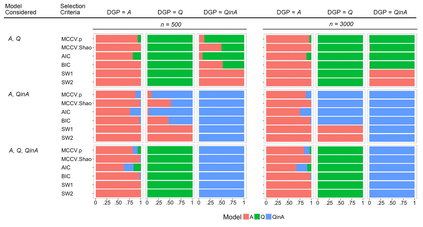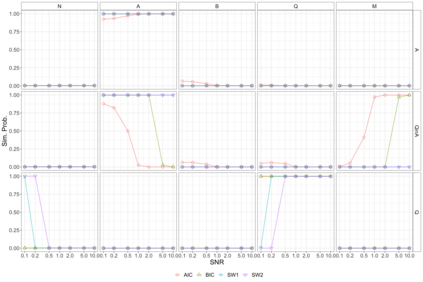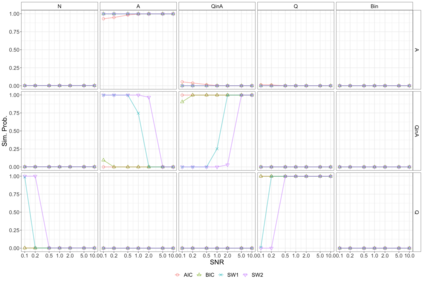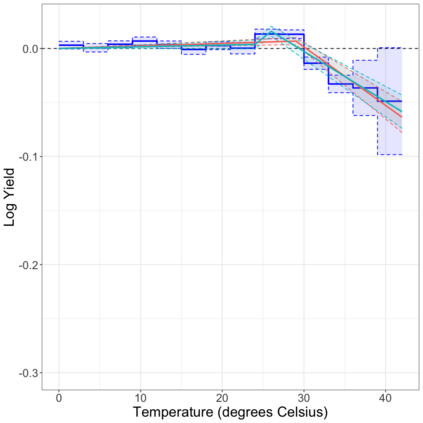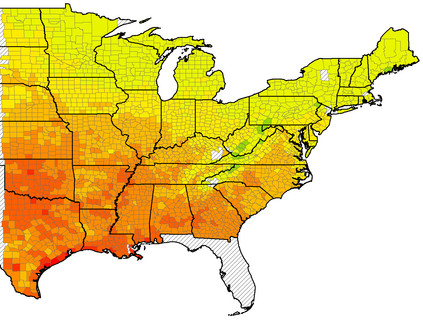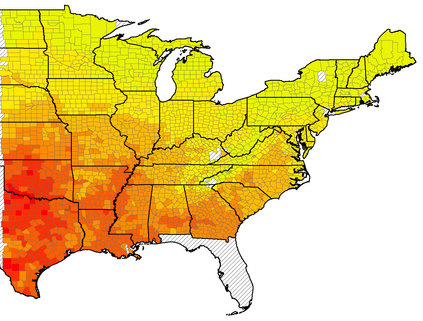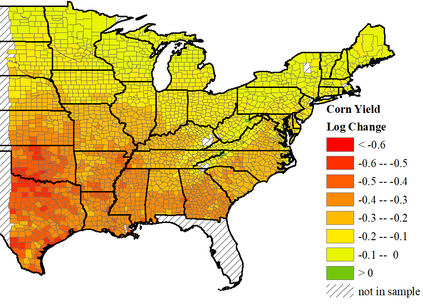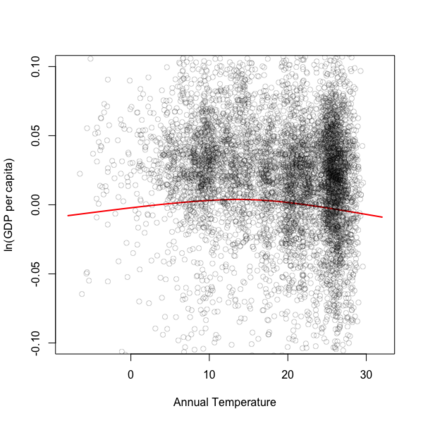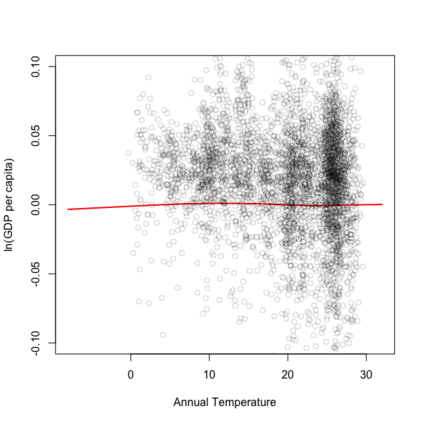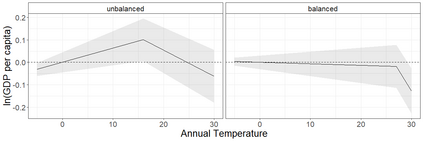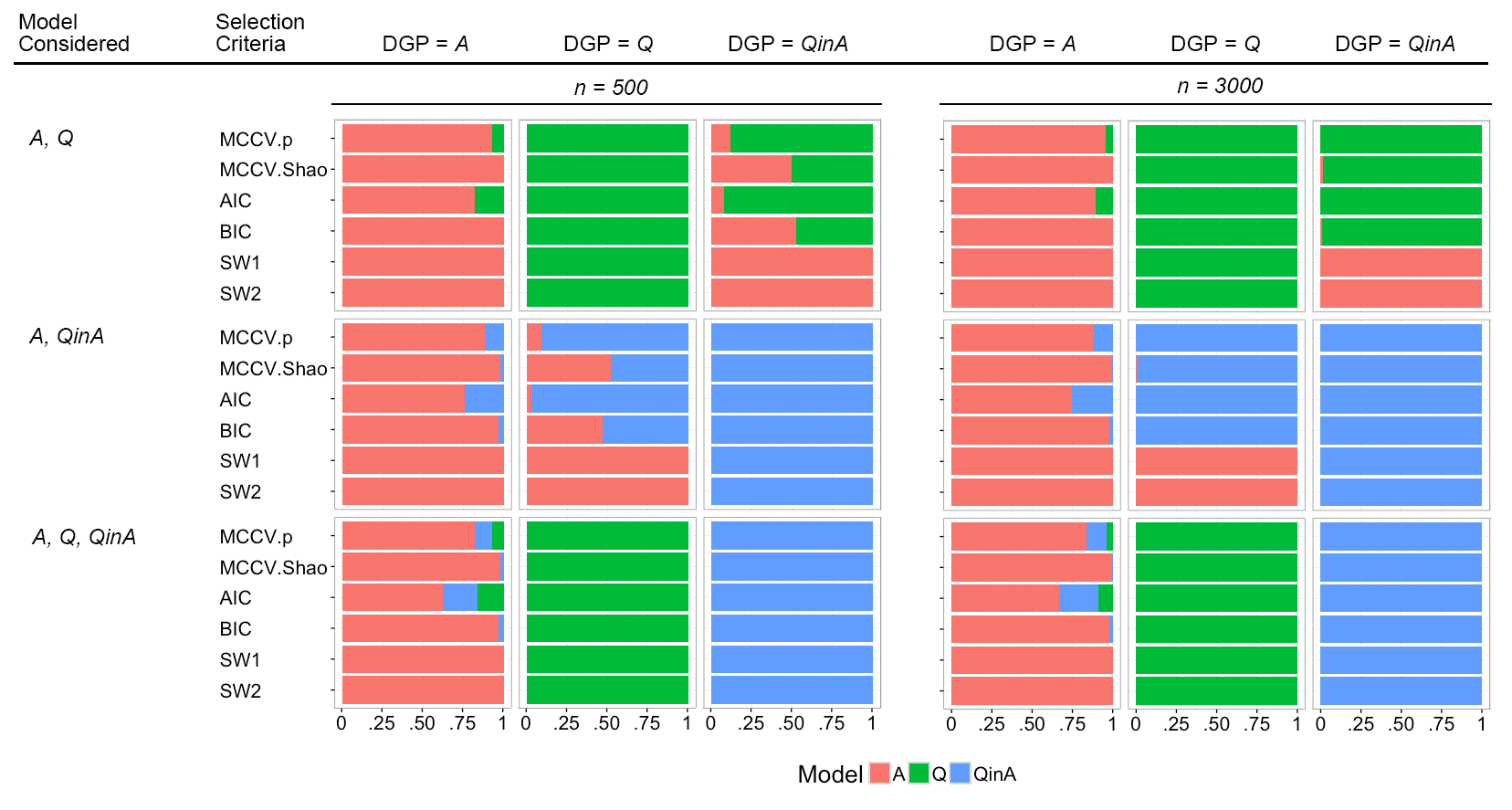Climate change impact studies inform policymakers on the estimated damages of future climate change on economic, health and other outcomes. In most studies, an annual outcome variable is observed, e.g. agricultural yield, annual mortality or gross domestic product, along with a higher-frequency regressor, e.g. daily temperature. While applied researchers tend to consider multiple models to characterize the relationship between the outcome and the high-frequency regressor, to inform policy a choice between the damage functions implied by the different models has to be made. This paper formalizes the model selection problem in this empirical setting and provides conditions for the consistency of Monte Carlo Cross-validation and generalized information criteria. A simulation study illustrates the theoretical results and points to the relevance of the signal-to-noise ratio for the finite-sample behavior of the model selection criteria. Two empirical applications with starkly different signal-to-noise ratios illustrate the practical implications of the formal analysis on model selection criteria provided in this paper.
翻译:气候变化影响研究使决策者了解未来气候变化对经济、健康和其他结果的估计损害。在大多数研究中,都观察到年度结果变量,例如农业产量、年死亡率或国内生产总值,以及高频递减器,例如每日温度。虽然应用研究人员倾向于考虑多种模型来描述结果与高频递减器之间的关系,以便为不同模型所隐含的损害功能之间的选择提供依据。本文件将这一经验环境中的模型选择问题正式化,并为蒙特卡洛交叉校验和通用信息标准的一致性提供了条件。模拟研究说明了理论结果和信号对噪音比率与模型选择标准有限抽样行为的相关性。两种具有截然不同信号对噪音比率的经验应用说明了对本文所提供的模型选择标准进行正式分析的实际影响。

